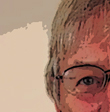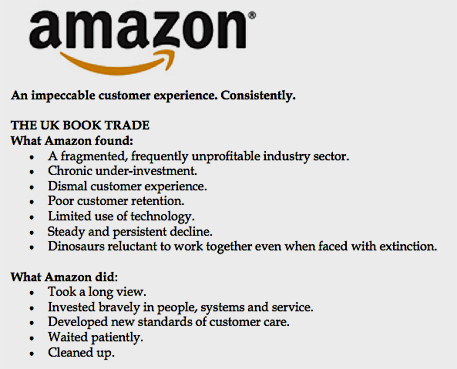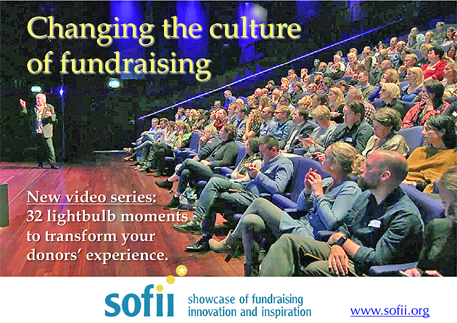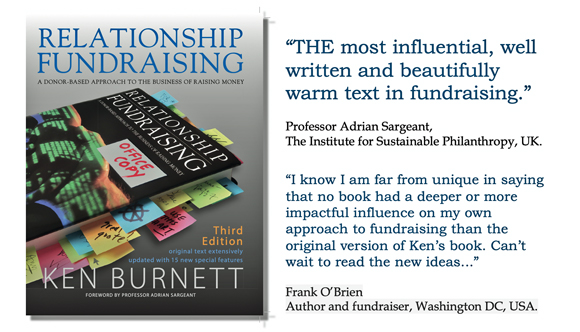|
Blog 4 December 2017 Change takes time and can be spectacularly difficult. Yet it’s amazing what we can do when we come together. And how hard resisting change becomes. It needs to stay happening long enough to make real and enduring this long overdue transformation, so the changes can take root and flourish. Literally thousands of people joined in, all working together for no other reward than the common cause of making fundraising better. What’s stopping us from doing something like this again? Nothing, except perhaps ourselves.
|
Just recently something happened that was one of the best things ever in all my years of fundraising. I want to write about it because I fear it may have gone largely unnoticed. It’s not often we fundraisers face a crisis. Even more unusual is when the crisis is of such magnitude that all kinds of people from every shade and style of cause and organisation feel compelled to come together, to unite to devise and construct a combined response that turns adversity into advantage. Change takes time and can be spectacularly difficult. Yet it’s amazing what we can do when we come together. And how hard resisting change becomes. Unusually, this did happen in 2017, in the wake of the tragic Olive Cooke story. Fundraisers, their friends, colleagues and well-wishers from all across our diverse voluntary sector came together for just a few short months, to try to define and promote better ways of doing business – ways of fundraising that the donors on whom they depend would find more acceptable and even enjoyable. In their hundreds, even thousands, people signed up to lead the change, because all could see it was so needed. They rolled up their sleeves and just got on with making it happen. The transformation that resulted was something to be involved in, a game-changer, a genuine force for good.
Great. But the thing is, it needs to happen again. Now. It should have continued. It needs to stay happening long enough to make this very overdue transformation real and enduring, so the changes that have been identified and called for can take root and flourish. There is precedent for such fundamental change. I’ve reported before (pre Mrs Cooke) on how easily Amazon usurped the UK book trade, little more than a decade ago. It’s a story of disunity, underinvestment and ineptness being overtaken and overwhelmed by a single simple vision driven by cool heads, steady nerves, commitment and deep pockets. Fundraisers should learn from the demise of the UK book trade and sidestep a similar catastrophe themselves.
Sound familiar? I know it’s not quite the same thing and I’m not advocating for Amazon here. But that they did it despite not being indigenous and while being seriously socially unacceptable should surely encourage charities to have more confidence in their potential to unite behind something bold, innovative and adventurously ambitious. So we should reconsider what's just happened and try to do more of it. Fundraisers in the UK don’t need to be reminded of how their cosy world was turned upside down just two years ago by the media storm that followed the death of 92-year-old Mrs Olive Cooke. Her suicide sparked a torrent of media stories critical of charities and how they practice their fundraising. The result was unparalleled negative publicity for fundraising practitioners, causing massive damage to the public trust and confidence upon which giving depends – a flood of cancelled direct debits from donors, fundraiser resignations, waves of external interference and restrictive regulation and predictions from many in our sector that the future of fundraising was spiralling towards permanent decline. Then this marvellous coming-together happened. This was a singular, striking event, unique in my 40+ years’ experience. Under the flag of the specially-formed Commission on the Donor Experience they were rallying to the cause of changing fundraising culture for good, replacing financial transaction and short-term thinking with a culture that puts the donor experience comprehensively and permanently at the heart of charities’ fundraising strategies across the sector, across the nation. In addition to the 1,500 people who signed up as enthusiasts (supporters), more than 30 volunteers took on the mammoth task of leading one of the Commission’s 28 major projects. At least five times that number were co-opted as contributors – one project alone had contributions from more than 30 expert individuals. Plus, groups of experts were drafted in to review each project as soon as it was written,
|
Continued from column 1, below. while countless others took part in interviews, research projects, events and a host of ancillary activities. Literally thousands of people joined in, all working together for no other reward than the common cause of making fundraising better.The results show the task was worth it. Or at least, will be, provided their implementation is given similar commitment and support. A similar initiative in Holland, inspired by CDE, has started to take off in that country, with early signs of strong support from the Dutch fundraising community. The standard for the task of implementing CDE’s work has now firmly been hoist by the UK Institute of Fundraising. They have formed a special interest group with the formidable, challenging mission of embedding CDE’s 6Ps document, the outputs of the 28 projects and their 526 recommendations across the entire UK voluntary sector. Permanently. What’s needed now, to make these changes stick?
The SOFII website (register for free updates here) will shortly begin hosting a series of video films, most short and to the point, just 2 to 3 minutes or less, some a bit longer with quite detailed content. Filmed this October in Amsterdam, the 44 individual videos in the ‘32 lightbulb moments’ series are edited from the day-long seminar that launched the Dutch initiative mentioned above. Each presents a different transformational change, for fundraisers. Unfortunately, all are presented by a solitary white male British presenter of advanced years (ie me – I know, I know...) but, that apart, much of their content is focused on some of the most significant findings of the CDE. What’s stopping us from doing something like this again? But then, that’s the one thing that stopped the UK book trade from seeing off Amazon’s assault on their livelihoods. That’s the thing that’s stopped fundraisers from anticipating the media’s assault on fundraising years before, when all the signs were so clear. That’s the one thing that consistently seems to hold the UK voluntary sector back. Will it stop us from implementing a consistently great donor experience across the UK voluntary sector, now? That, dear reader, probably depends on you. © Ken Burnett 2017 More reasons why we should work better together –
|
||





